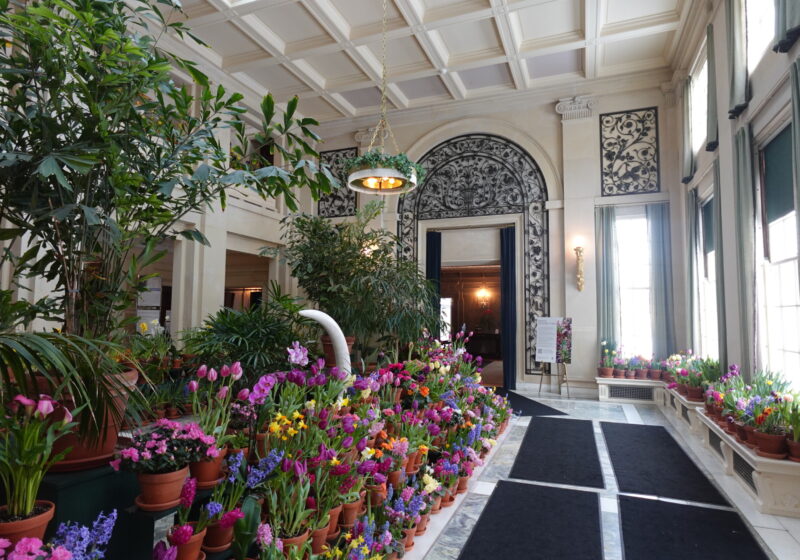UR President Joel Seligman assumed duties on July 1, but an inauguration didn’t make sense without students and faculty present, according to Vice President and General Secretary Paul Burgett, who co-chaired the inaugural planning committee.
“We scheduled the inauguration during Meliora Weekend in an effort to help attract alumni who would be here for homecoming and reunions and to attract families of students who would also be here. It worked,” he said.
Seligman’s inaugural activities neither ended nor began Sunday afternoon, but instead started with an inaugural concert held in Kilbourn Hall on Thursday night. The concert showcased the Ying quartet, tenor Robert Swenson, who sang a series of songs by composer Dominick Argento ’58, and a Tchaikovsky string sextet, in which cellist Steven Doane and violist John Graham joined the Ying quartet.
“It was nice – people had the chance to see one another,” Dean of The College William Green said.
An intimate dinner was held in the Flaum Atrium at the UR Medical Center on Saturday for a guest list of about 150 people – including trustees, search committee members and faculty members.
Guests were treated to speeches on “What Rochester Meant to Me” by trustee and Brown University President Sheila Blumstein, ’65, former Simon School professor Michael Jensen and Arthur Miller, ’55.
“They all offered poignant and thoughtful reflections that moved the audience,” Burgett said.
The big day began with an inaugural symposium in Strong Auditorium, titled “Directions in Higher Education for the Twenty-First Century.”
Former University of Chicago President Hugo F. Sonnenschein ’61, moderated the panel, which consisted of Columbia University President Lee C. Bollinger, University of Pennsylvania President Amy Gutmann, former Executive Vice Chancellor for medical affairs at Washington University in St. Louis William A. Peck and New York University President John Sexton.
“The symposium was superb – high level, entertaining, insightful and acceptable,” Green said. “They talked about substantive issues.”
Each gave a short speech on an issue affecting the future of private universities, made suggestions for handling the problems and pointed out how President Seligman fit into the plan.
“It was a tour de force of intellectual insight, forceful candor and great humor by individuals who arguably are among the strongest leaders in higher education in the nation,” Burgett said.
An informal, complimentary lunch, held in The Meliora and Douglass Dining Center, followed the symposium so guests to socialize before heading downtown to the Eastman Theatre for the ceremony.
After inauguration, everyone was invited to a celebratory reception at the Memorial Art Gallery, where professors, students, alumni and guests had the opportunity to personally congratulate the new president.
“I thought it was incredible – I really enjoyed it,” sophomore AJ Greico said. “I think he’s going to be a great president – I’m really excited. He’s got it right.”
Even the weather did not bother many people.
“We heard very few complaints about the weather – people were enjoying themselves and we got plenty of positive feedback,” Green said.
The weekend did not encounter any troubles.
“I’ve been around for a long time, and I’ve never been more proud of the university as I was this weekend,” Burgett said.
Borchardt can be reached at jborchardt@campustimes.org.




